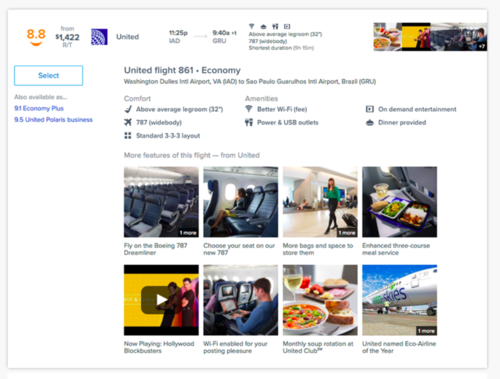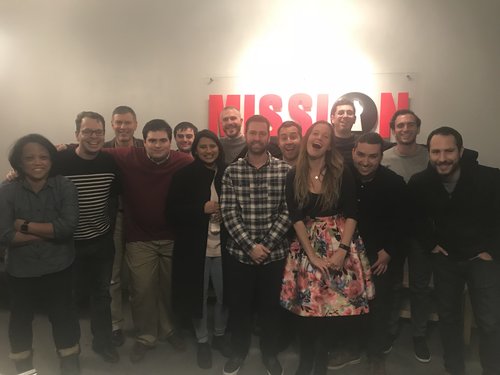When large industries undergo massive change and new business models emerge, the old guard has three real choices: innovate (hard), get run over (common), or acquire and adapt (often the most viable option). Established industry players are largely ill-equipped to rapidly adapt to changing environments, though they are all too often delusional in believing that they can. The smart ones realize that they must acquire new capabilities at these moments, compensating for their shortcomings by acquiring more nimble, disruptive startups. We’ve seen an acceleration of this sort of Old Guard Buys New Disruptor activity in the past couple years: Walmart/Jet; GM/Cruise; Unilever/Dollar Shave Club; GE/ServiceMax; Mars/Whistle; Albertsons/Plated. The list goes on. Today’s news covering ATPCO’s acquisition of Routehappy brings that trend to the online travel industry, where an established stalwart, having never made a single acquisition in its 53-year history, has brought on Primary portfolio company Routehappy to power the next generation of online flight merchandising.
Having led Routehappy’s seed round in 2012, we are excited about this individual deal, but we’re also thrilled about the continued trend of aggressive, future-thinking acquisitions by old-line companies. It’s a dynamic that bodes well for the M&A landscape in 2018 and beyond. More buyers equals better outcomes, after all, and the venture industry is in serious need of a liquidity wave. The Routehappy-APTCO deal represents a logical and advantageous union of two critical players, wholeheartedly committed to democratizing data and increasing transparency for the benefit of consumers and airlines alike. It’s one of those rare win-win opportunities that will improve the airline ticketing experience for all.
Routehappy’s story is a startup recipe for success – one that could only come about at the hand of deeply experienced industry insiders. The company is the brainchild of seasoned industry vet Bob Albert, who learned every angle of the business during his seven-year tenure at Travelocity, and Adam Gwosdof, a brilliant data architect with particular expertise in leveraging database applications in the travel industry.
When the pair approached us in 2012, they offered up Routehappy as the solution to a number of obstacles in the airline industry. For one, competition in the industry was heating up as airlines came up with creative ways of cutting corners, er, differentiating themselves, through a seemingly infinite menu of amenities and services (admittedly they were also adding a nice array of premium offerings at the high end). But as this optionality increased, the airlines weren’t doing a great job of marketing these offerings.
Meanwhile, the arcane content distribution channels, controlled by online travel agents and the global distribution systems that sit behind them (i.e., Orbitz, Travelocity, Sabre, Travelport) had no access to the data that would enable the product differentiation at the point of sale. They aggregated pricing and schedule data, but not the information that has come to matter most to travelers, such as bag fees, in-flight entertainment, wifi, leg room, and the invention of fuzzy nomenclature like Premium Economy or Flexible Economy that make big differences in the quality of one’s travel experience.
The Routehappy team was determined to build a platform to pull those rich data points from the airlines and deliver them to consumers via the industry’s established distribution channels. The ensuing transparency has created a much-improved customer experience, as well as higher revenues and conversion rates for the airlines. Armed with better information about flight attributes at the point of sale, consumers purchased more frequently and, with a better understanding of the value of a ticket, they were more apt to buy the pricier tickets. It was a win for all parties: airlines, OTAs, and consumers. As consumers, it’s easy to take this information for granted, but make no mistake: It took a herculean effort from the Routehappy team to build this rich content marketplace and a truly disruptive approach to the industry standard.
Routehappy caught the eye of airline industry stalwart ATPCO, which was created in 1965 as an industry cooperative – akin to SWIFT in the banking industry, or to Hulu in the media world. It serves as a clearinghouse for fare and schedule data across all airlines. Thanks to ATPCO, Delta has a single place to publish its massive and ever-changing fare and schedule data, and Orbitz has a single place to go to gather fare and schedule data for every airline in the world.
Fare and schedule data alone sufficed for a few decades, but as the industry continued to evolve, ATPCO realized that it needed more data points to enable a modern ticket shopping experience. Moreover, the company realized that Routehappy was potentially encroaching on its turf with an increasingly robust and valuable data set. With a complementary business model and similar mission, it became clear that a marriage between the two would generate efficiencies and distinct advantages for the entire industry. We talked a lot about the logic of Routehappy continuing as a standalone company; after all, it’s been profitable for a couple years, and has not less than doubled revenue in each of the last four years. But sometimes these relationships just make too much sense, and sometimes the bigger company makes an offer you can’t refuse.
So while air travel itself grows increasingly complex and logistically unpleasant, you can take comfort in knowing that two organizations – now acting as one – are dedicated to making your ticketing experience as smooth as possible. Congratulations to Bob and the entire Routehappy team. It’s been an honor to be a part of your journey!





